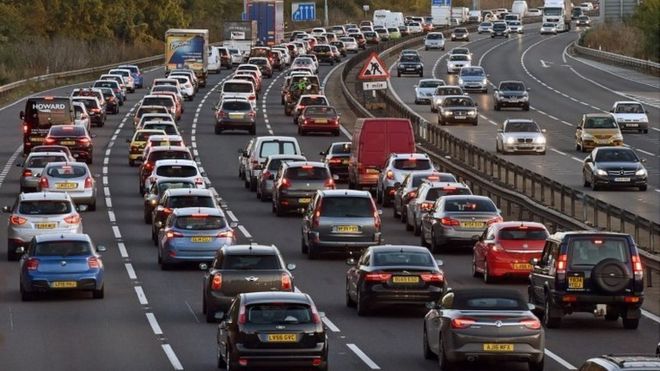February 17 2021
Alison Edwards, CPT’s Head of Policy, writes about how road pricing can encourage the shift to more sustainable and environmentally friendly forms of transport.
The Government has set ambitious climate change goals, and whilst electric vehicles will certainly contribute to achieving them, what we really need is to get people out of their cars and onto buses and coaches. Road pricing could be one way to achieve this.
Put simply, road pricing would mean charging people for using roads in specific places at specific times. However, we propose that vehicles which solve the problems of congestion and pollution – such as buses and coaches – should be exempt from the charges. This will encourage the shift to more sustainable and environmentally friendly forms of transport by deterring people from using their cars, and instead we can position buses and coaches as the most appealing travel options. Why pay to use the road, on top of fuel for your car, when you can go by coach or bus, both of which offer an affordable, comfortable way of travelling both long and short distances? Why sit stuck in traffic at the wheel of a car when you can be sat in a priority lane using on-board WiFi to catch up on emails or just using the time to read a good book?
By implementing road pricing and making sure buses and coaches are exempt, Government will prove they are committed to championing bus and coach travel as more environmentally friendly travel options than the car. We need to go further than banning sales of new petrol and diesel vehicles. Studies have shown that, even if all new cars from 2030 are zero emission, we will still need to reduce traffic on our roads by up to 20% by 2030 if we are to achieve the Government’s climate change goals.[1]The logical solution is to get more people travelling by bus and coach. Operators have made huge investments in recent years to make their vehicles environmentally friendly, but they also need Government policy to back up their hard work.
To really highlight buses and coaches as the first choice for travel, it will be important that any road pricing charging structure is transparent so that people are able to compare the (currently-invisible) cost of a journey by car with the cost of the same journey by public transport. This will empower people to make informed decisions and prove to them that, actually, their journey to work, the supermarket, the cinema, could be much cheaper by bus.
Road pricing, combined with pro-public transport messaging from Government and prioritising bus travel in transport networks, will go a long way to embedding bus and coach travel as the most convenient, affordable option and help us reach those climate change goals.
[1] Friends of the Earth (February 2019) More than Electric Cars https://policy.friendsoftheearth.uk/print/pdf/node/17
